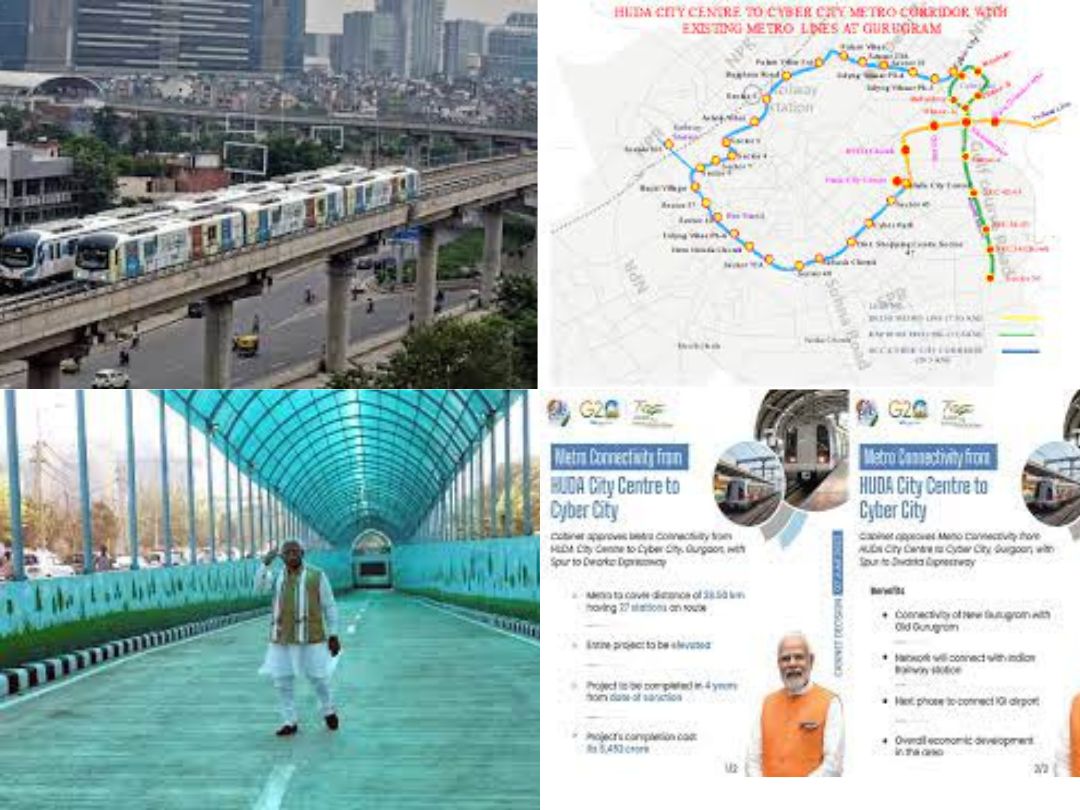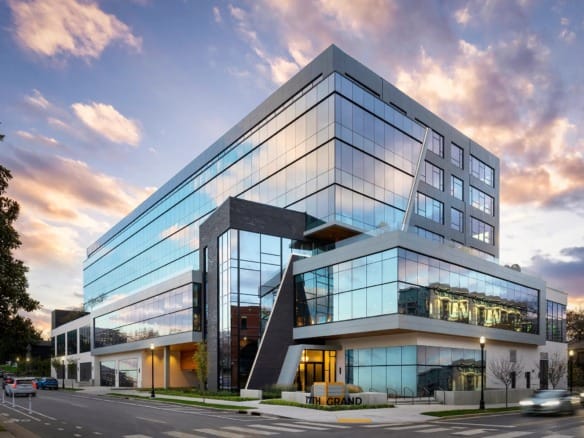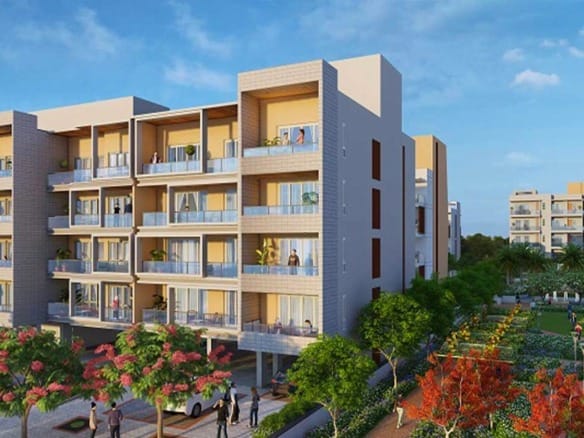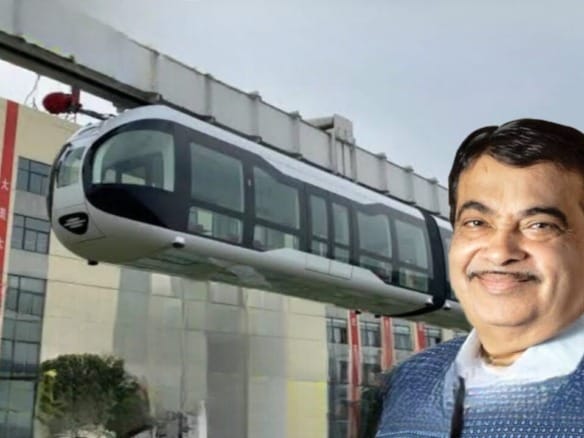The Union Cabinet ministry approved the metro rail connectivity from the HUDA City Centre metro station to Cyber City in Gurugram on Wednesday, with the goal of strengthening public transport in the NCR region.
After the approval order is issued, the project will be carried out by Haryana Mass Rapid Transport Corporation Limited (HMRTC), which will be established as a 50:50 special purpose vehicle of the Centre and the Haryana government.
The proposed line will be 28.50 kilometres long and having 27 stations along the way. The line’s metro trains will have a design speed of 80 km/h and an average speed of 34 kmph. Within four years, the entire project will be elevated and completed.
The Housing and Urban Affairs Ministry stated that the new metro line will connect New Gurugram with the older parts of the city, as well as provide overall economic development in the area, and that it will connect to the IGI Airport in the next phase.
“The Union Cabinet, chaired by PM Narendra Modi, approved metro connectivity from HUDA City Centre to Cyber City with a spur line to Dwarka Expressway, Gurugram, covering a total distance of 28.50 km and having 27 stations on the route,” said the ministry in a statement.
The project’s total completion cost will be Rs 5,452 crore. The metro connectivity will have a standard gauge line of 1,435 mm (5ft and 8.5 inches), according to the statement. It will have a spur line from Basai village to connect to the depot, according to the announcement.
Sector 45, Cyber Park, Sector 47, Subhash Chowk, Sector 48, Sector 72A, Hero Honda Chowk, Udyog Vihar Phase 6, Sector 10, Sector 37, Basai Village, Sector 9, Sector 7, Sector 4, Sector 5, Ashok Vihar, Sector 3, Bajghera Road, Palam Vihar Extension, Palam Vihar, Sector 23A, Sector 22, Udyog Vihar Phase 4, Udyog Vihar Phase 5, Udyog Vihar Phase 6, Udyog Vihar Phase 7, and cyber city.
According to the ministry, Gurugram has a population of approximately 25 lakh people, and daily ridership on the new line is expected to be 5.34 lakh by 2026, 7.26 lakh by 2031, 8.81 lakh by 2041, and 10.70 lakh by 2051.
The loan for the metro line expansion project is being secured with the European Investment Board and the World Bank, as per the statement issued by the Housing and Urban Affairs Ministry.
Source-TOI




